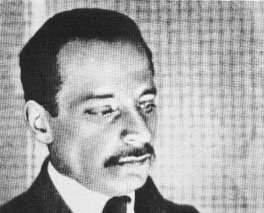Friday, April 29, 2005

Herbsttag
Herr: es ist Zeit. Der Sommer war sehr groß.
Leg deinen Schatten auf die Sonnenuhren,
und auf den Fluren laß die Winde los.
Befiehl den letzten Früchten voll zu sein;
gieb ihnen noch zwei südlichere Tage,
dränge sie zur Vollendung hin und jage
die letzte Süße in den schweren Wein.
Wer jetzt kein Haus hat, baut sich keines mehr.
Wer jetzt allein ist, wird es lange bleiben,
wird wachen, lesen, lange Briefe schreiben
und wird in den Alleen hin und her
unruhig wandern, wenn die Blätter treiben.
Rainer Maria Rilke
Autumn Day
Lord, it is time. Summer was very long.
Cast your shadows on the sundials
and let the drafts blow through the corridors.
Command the last fruits to ripen;
give them just two more meridionale days,
force them to completion and hunt
the last drop of sweetness in the hardest wines.
He who doesn't have a house yet, may he never build one.
He who is still alone, may it ever be so,
may he wake, read, and write long letters,
and may he wander restlessly along
the avenues when the leaves begin to blow.
Comments:
<< Home
Georgio, here is McAuley's stab (posted to an online poetry gig by Mark O'Connor, God bless him, as otherwise the poem would be very hard to find).
AUTUMN
Heart, it is time. The fruitful summer yields.
The shadows fall across the figured dial,
The winds are loosed upon the harvest fields.
See that these last fruit swell upon the vine,
Grant them as yet a southern day or two
Then press them to fulfillment and pursue
The last of sweetness in the heady wine.
You shall be homeless, shall not build this year.
You shall be solitary and long alone.
Shall wake, and read, and write long letters home,
And on deserted pavements, here and there
Shall wander restless, as the leaves are blown.
(Posted from Coogee autumn by the sea, the nights settling a chill upon us, but the sun warm by the sea as we perambulate through the afternoon.)
AUTUMN
Heart, it is time. The fruitful summer yields.
The shadows fall across the figured dial,
The winds are loosed upon the harvest fields.
See that these last fruit swell upon the vine,
Grant them as yet a southern day or two
Then press them to fulfillment and pursue
The last of sweetness in the heady wine.
You shall be homeless, shall not build this year.
You shall be solitary and long alone.
Shall wake, and read, and write long letters home,
And on deserted pavements, here and there
Shall wander restless, as the leaves are blown.
(Posted from Coogee autumn by the sea, the nights settling a chill upon us, but the sun warm by the sea as we perambulate through the afternoon.)
That's the better translation, as McCauley has kept the light lyrical touch that Rilke has (unlike many modern translations that try to turn him into a furrow-browed modernist).
It is interesting that McCauley has replaced "Lord" with "Heart" - especially from such a religious poet. Thanks for the link as I am always trying to find poems on the web.
Post a Comment
It is interesting that McCauley has replaced "Lord" with "Heart" - especially from such a religious poet. Thanks for the link as I am always trying to find poems on the web.
<< Home

